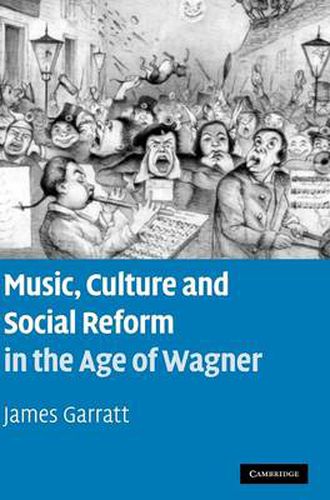Readings Newsletter
Become a Readings Member to make your shopping experience even easier.
Sign in or sign up for free!
You’re not far away from qualifying for FREE standard shipping within Australia
You’ve qualified for FREE standard shipping within Australia
The cart is loading…






Challenging received views of music in nineteenth-century German thought, culture and society, this 2010 book provides a radical reappraisal of its socio-political meanings and functions. Garratt argues that far from governing the nineteenth-century musical discourse and practice, the concept of artistic autonomy and the aesthetic categories bequeathed by Weimar classicism were persistently challenged by alternative models of music’s social role. The book investigates these competing models and the social projects that gave rise to them. It interrogates nineteenth-century musical discourse, discussing a wide range of manifestos championing musical democratization or seeking to make music an engine for the transformation of society. In addition, it explores institutions and movements that attempted to realize these goals, and compositions - by Mendelssohn, Lortzing and Liszt as well as Wagner - in which the relation between aesthetic and social claims is programmatic.
$9.00 standard shipping within Australia
FREE standard shipping within Australia for orders over $100.00
Express & International shipping calculated at checkout
Challenging received views of music in nineteenth-century German thought, culture and society, this 2010 book provides a radical reappraisal of its socio-political meanings and functions. Garratt argues that far from governing the nineteenth-century musical discourse and practice, the concept of artistic autonomy and the aesthetic categories bequeathed by Weimar classicism were persistently challenged by alternative models of music’s social role. The book investigates these competing models and the social projects that gave rise to them. It interrogates nineteenth-century musical discourse, discussing a wide range of manifestos championing musical democratization or seeking to make music an engine for the transformation of society. In addition, it explores institutions and movements that attempted to realize these goals, and compositions - by Mendelssohn, Lortzing and Liszt as well as Wagner - in which the relation between aesthetic and social claims is programmatic.